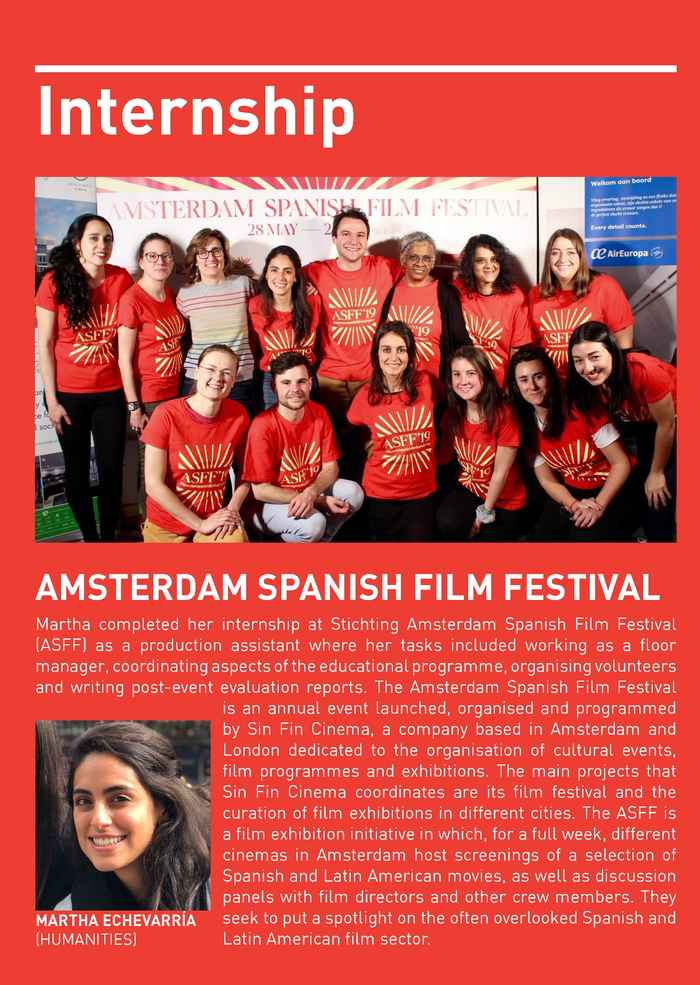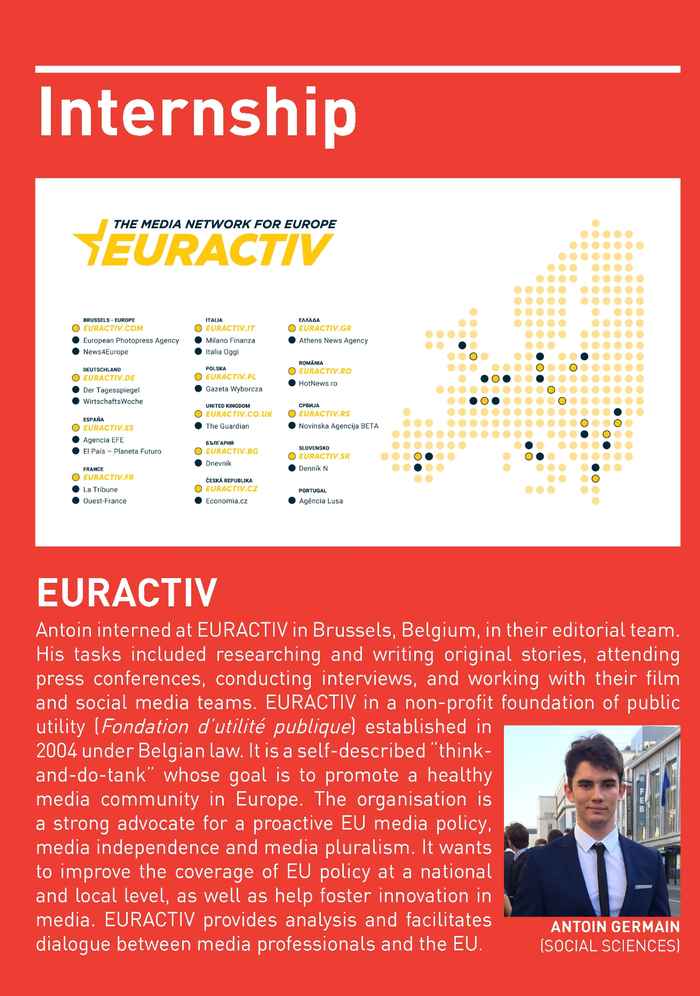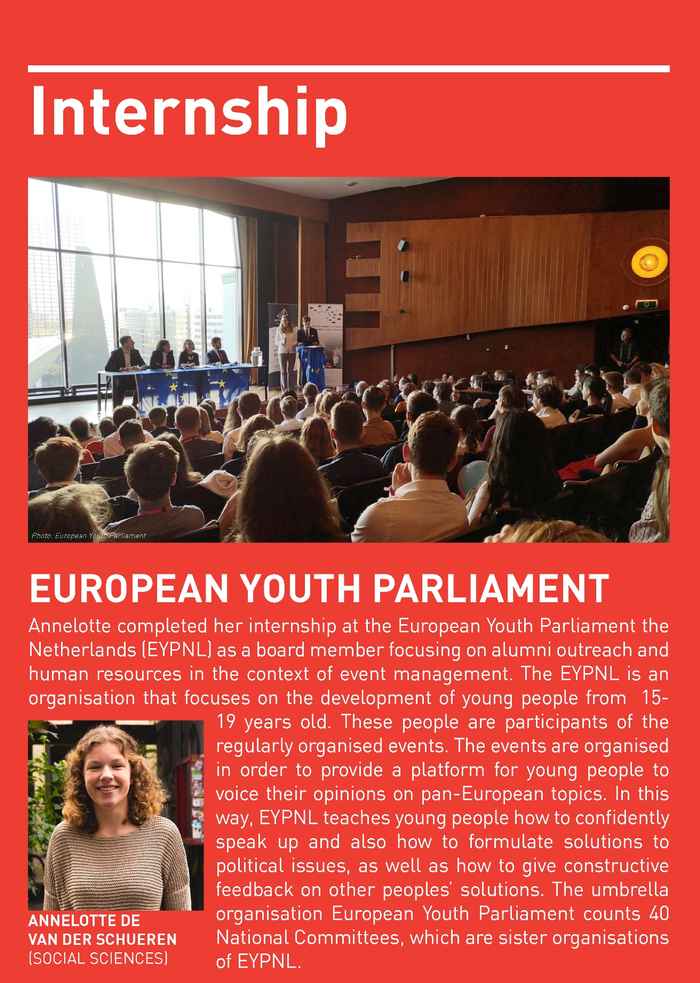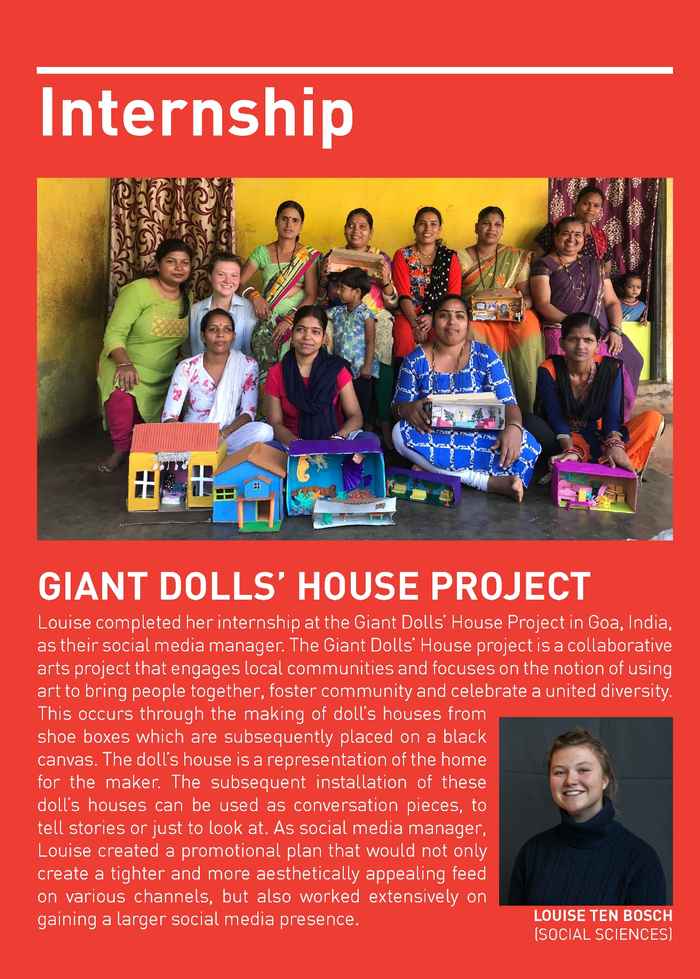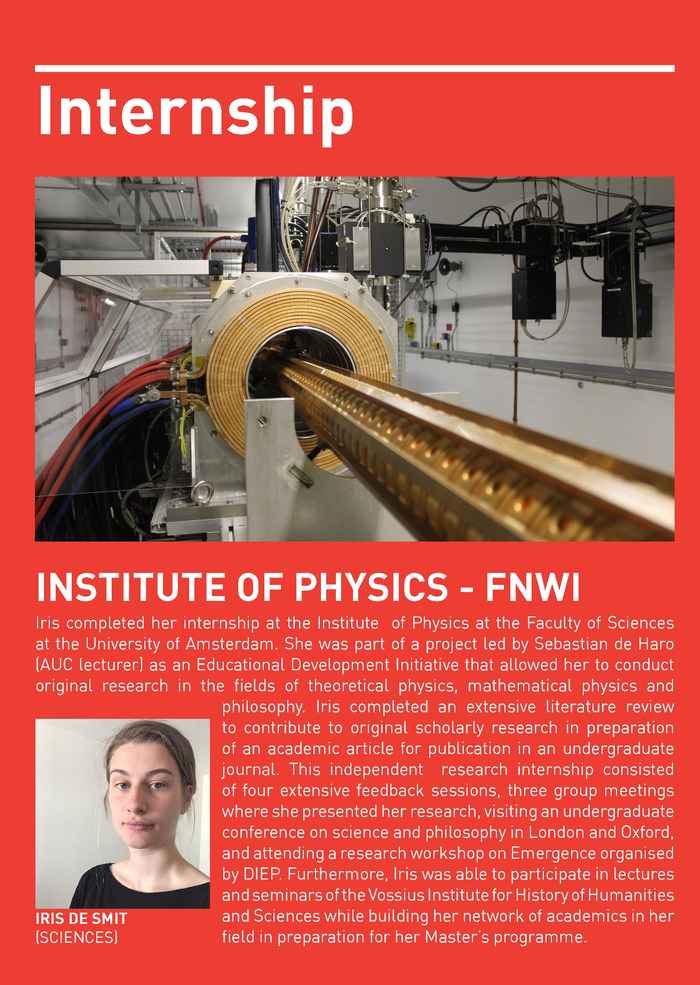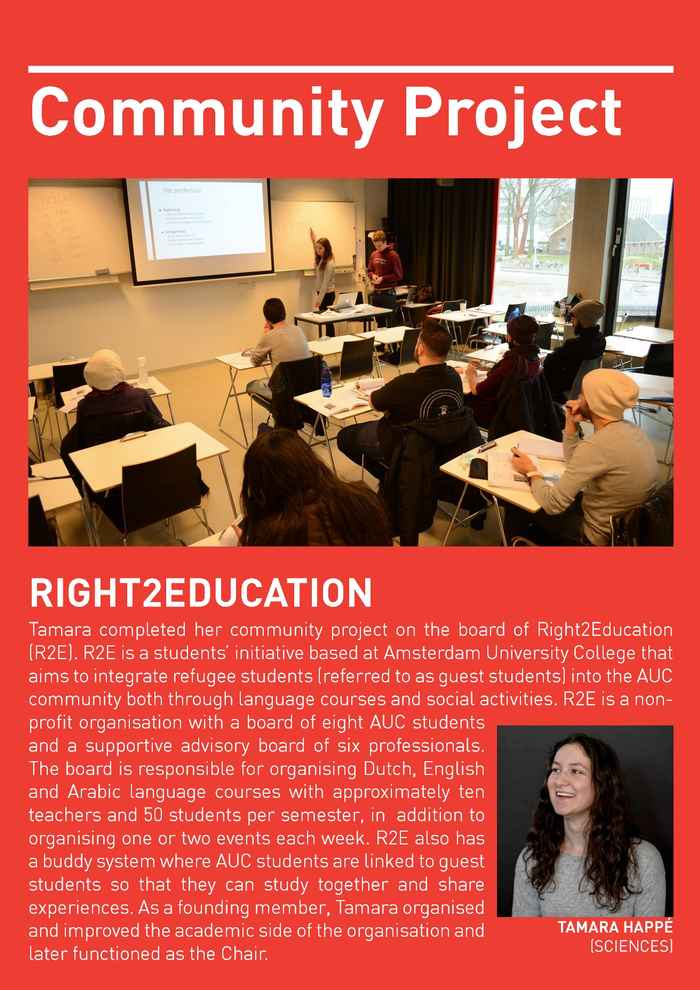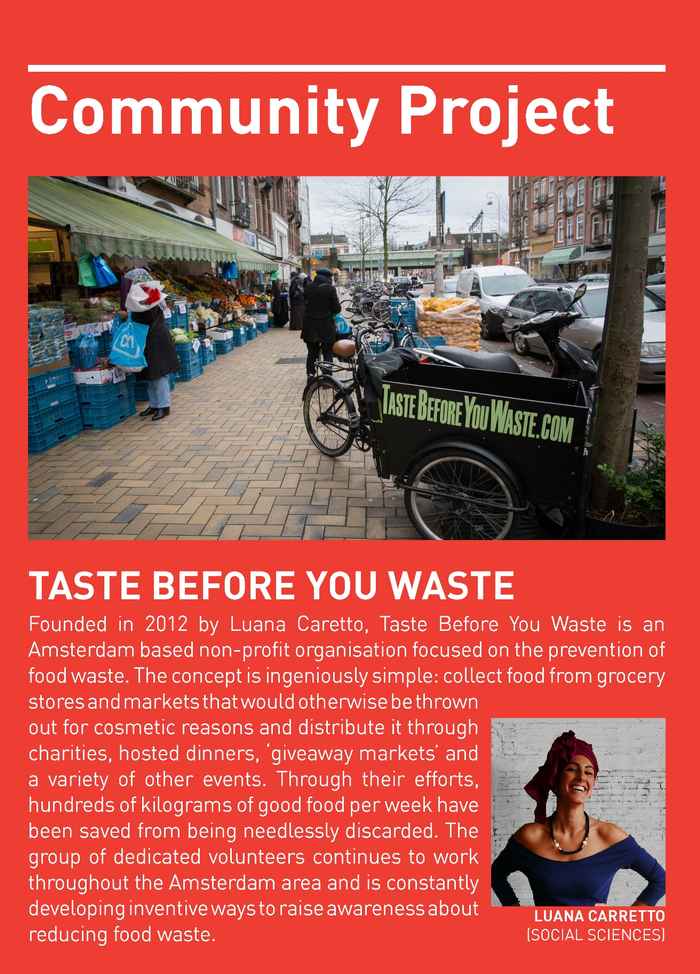Community Projects and Internships
Learning through real-world experiences
By making internships and community projects an integral part of the curriculum, AUC emphasises the importance of giving back to the community and providing opportunities for students to develop their professional and interpersonal skills through real-world experience.
-
Experiential learning through Community Projects and Internships
Bridging academia and the real world: Community Projects and Internships
At AUC, Community Projects (CP) and Internships (I) offer students the opportunity to apply classroom learning to real-world experiences. These experiences are crucial for integrating academic knowledge with professional and personal development.
Requirement and structure
All students are required to complete at least one Community Project or Internship as part of their studies. These are structured as individual courses, each being the equivalent of 6 EC, equating to 168 hours of work. Students can fulfill this requirement in various ways:
- Full-time: Work 40 hours per week over four weeks, typically in January or June.
- Part-time during semesters: Dedicating around 10 hours per during the 16-week period
- Full-semester 30 EC internship: See below.
Opportunity for 30 EC internship
Since Spring 2024, students have the option of pursuing an extended 30 EC internship. This immersive experience allows students to engage in academic research over an entire semester. Supervised by both an AUC faculty member and an external expert from the host research department, this internship is ideal for students aiming for a research-oriented career. It provides in-depth exposure to the field of academic research and hones essential skills for future success in the industry.
-
Differences between a Community Project and an Internship
Community projects and Internships differ in their general focus, but also in their contributions to learning goals.
Community Projects
Community Projects offer students the opportunity to serve a community and develop social and civic awareness. They are intended to promote engagement at local, national and global levels, and to foster personal and social responsibility.
Internships
Internships offer students the opportunity to gain practical work experience, develop research skills and prepare them for future professional or academic careers. Internships must specifically contribute to the development of academic skills as defined in the Academic Standards and Procedures.
An Internship offers students a chance to develop their professional skills, but in practice, both a Community Project and Internship may provide students with experiences that enhance what they have studied in the classroom and prepare them for a career in their chosen field. During their time at AUC, students may also do both a Community Project and an Internship.
-
Final report and evaluation
At the conclusion of their Community Project or Internship, students submit a final report in which they reflect on the learning outcomes and their supervisor's evaluation. The report typically discusses the professional skills they've learned, the personal development they've witnessed, progress on their interpersonal skills and how the experience has shaped their ideas on citizenship. Students who complete research-based internships, such as the 30 EC internship, will also write a content oriented report that outlines, among other things, their findings and conclusions.
-
CPI Manuals and Guidelines
The file below details the guidelines, desired learning outcomes and evaluation methods used for Community Projects and Internships at AUC.
- Student experiences
-
Questions about Community Projects and Internships?
Students, organisations and others interested in the Community Projects and Internships programme at Amsterdam University College should contact the CPI office via the email address below. Current AUC students can find more information related to the CPI programme, including the application process, report deadlines and a list of CPI partners/openings, on student.auc.nl.

